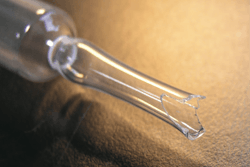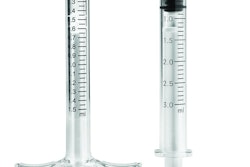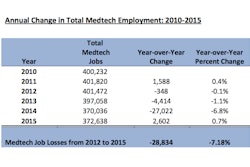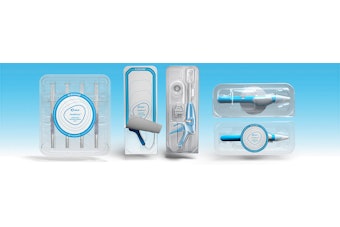This content was written and submitted by the supplier. It has only been modified to comply with this publication’s space and style.
“Wearable medical devices represent one of the fastest growing sectors in the healthcare industry, which is being fueled by several trends,” said Marie Crane, Healthcare marketing leader, Dow Corning. “While wearable monitoring and treatment devices can deliver important benefits to patients, caregivers and the health system as a whole, their effectiveness depends on compliant usage – and compliance is closely linked to comfort. This is where Dow Corning’s tailored silicone solutions for skin-adhered devices, including Dow Corning® MG 7-1010 Soft Skin Adhesive, our highest adhesion level of soft-skin adhesive to date, make a big difference.”
Medical Device Megatrends
Four major trends are driving the growth of wearable medical devices, including skin-adhered diagnostic and therapeutic devices.
- Population Aging: According to the Administration for Community Living, people aged 65 or older numbered 46.2 million in 2014 (the latest year for which data is available). By 2060, that population will more than double to about 98 million.2 Seniors typically have more medical issues than the younger population and can face difficulty traveling to the hospital or doctor’s office to receive care. Wearable medical devices allow more elderly people to benefit from convenient, remote monitoring and treatment at home.
- Chronic Conditions: The Centers for Disease Control and Prevention (CDC) reports that as of 2012, about half of all adults – 117 million people – had one or more chronic health conditions.3 Heart disease, stroke, cancer, type 2 diabetes, obesity and arthritis often require ongoing monitoring, which can be provided with wearables. Importantly, wearable devices can also help with prevention by enabling patients to track their health and make healthier choices.
Dow Corning Views Next-generation Silicone Adhesive Technologies as Key to Broader Global Adoption, Growth of Wearable Medical Devices.
- Self-management: Patients’ increasing interest in managing their own health and fitness is another major factor in the growth of wearable devices. Skin-adhered devices can provide a wide range of self-management functions, from back therapy guidance and ambulation monitoring to smoking cessation and sweat analysis4 for evaluating exercise results.
- Cost Control: Ongoing pressure to reduce spiraling medical costs can be alleviated by replacing some in-patient or out-patient clinical care with remote monitoring and treatment. Skin-adhered devices can wirelessly relay critical data to clinicians and automatically deliver medication, for example, via a programmed on-body injector.
Comfort Promotes Compliance
While skin-adhered diagnostic and therapeutic devices provide answers to the challenges of these megatrends, their efficacy – and market success – depend directly on patient compliance. Avoiding irritation during wear and discomfort during removal of skin-adhered devices, particularly when patients have delicate or sensitive skin, is an important compliance factor. This is why many device designers are turning to silicone pressure-sensitive and soft-skin adhesives. In addition to delivering proven biocompatibility, water repellency and design versatility, Dow Corning’s wide range of advanced silicone adhesives – with different levels of tack, adhesion strength and other parameters – make it easy to find a match for each application.
In addition to developing new pressure-sensitive adhesives and gentle soft-skin adhesives, Dow Corning is investing in state-of-the-art capabilities for medical device customers. Its newly expanded application center in Auburn, Mich., for example, offers expertise and support in medical device material processing and testing.
Dow Corning is exhibiting here at MD&M West 2017 in Booth 1921, where it is showcasing its expanding healthcare portfolio of industry-leading silicone technologies.





















